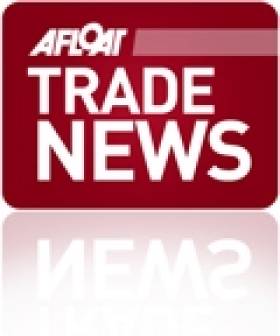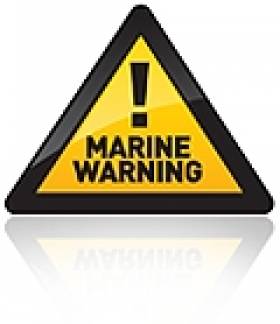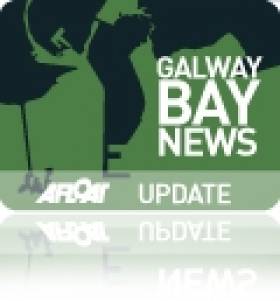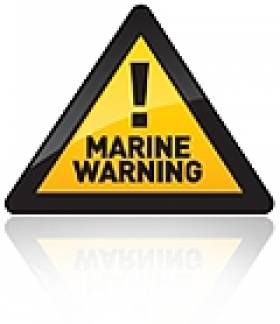Displaying items by tag: Coastal
Conference Reveals State of Marine Leisure Industry
With boat sales falling by as much as 80%, marina business down 20%, retail sales in chandlery down up to 38%, insurance down 12.5% the marine industry in Ireland and Wales had to take some action to ensure the marine trade and leisure industry survives.
An unusual industry conference took place in Dun Laoghaire today and yesterday with the objective of understanding where the industry is right now and how it needs to act to ensure that it survives the downturn in our economies.
Over 125 marine businesses from both sides of the Irish Sea will be attending in what will be the largest marine leisure Industry gathering ever brought together.
A joint address was given by the Executive Director of the British Marine Federation, Howard Pridding and David O'Brien the Chairman of the Irish Marine Federation set the scene as to where the industry is on both sides of the Irish Sea.
The conference heard from 3 companies who operate in the sector. One from each region, North Wales, South Wales and Ireland who will share with the conference their experiences in the current economic climate on how they are surviving and thriving in the downturn. Business tactics that need to be deployed were explored with a leading business and innovation specialist from Wales together with joint talks by Visit Wales and Failte Ireland on the development of marine leisure tourism.
Leading economist Jim Power delivered a talk on the economic situation and when we might begin to see some consumer confidence return to our markets.
The Pembroke Coastal Forum told how they have managed their coastline and environment and how they have facilitated marine leisure tourism through proper marine spatial planning.
The conference is being organised by irish-sea.org and Ireland/Wales Interreg IV A Programme funded by the European Region Development Fund.
Irish-sea.org has three partners, North Wales Watersports, South West Wales Marine Federation and the Irish Marine Federation.
Coastal Flooding Risk Warns Irish Water Safety
Flood conditions expose the public to hazards they need to be aware of. Fast moving water can exert pressure of up to four times its speed against the legs of someone attempting to cross it. Because water displaces bodyweight, the deeper a person becomes immersed the less the person weighs so the more difficult it is to remain upright. Never put ones feet down if swept away in floodwater, because foot and body entrapments and pinning are the leading cause of accidental death in rivers and fast flowing water.
Motorists need to be vigilant to avoid flooded areas on roads but particularly near rivers; with poor light and short days it is not possible to determine the depth of floods easily. Swift water will carry cars and other vehicles away and there have been very tragic drownings in the past as a result.
Children are naturally curious about water, therefore parents should caution them that floodwater hides the true depth and that manhole covers may be open and that small streams when swollen are very fast and deeper than normal.
What should I do when I hear a Flood Warning?
· Listen to the national and local radio for met eireann updates and AA Road watch updates
· Check on neighbours particularly if they are elderly, infirmed or families with young children
· Move your vehicles to higher ground
· Move animal stock to higher ground
· Check your small craft to ensure they are well secured or moored
· Make sure you have warm clothes, food, drink, a torch and radio.
· Block doorways and airbricks with sandbags or plastic bags filled with earth. Floodgate products will also work effectively.
· Switch off gas and electricity supplies if flooding is imminent.
· Check the time of High Water in the Newspaper or on http://easytide.ukho.gov.uk/EASYTIDE/EasyTide/SelectPort.aspx
· Check out www.flooding.ie for more detail on General flooding
Personal Safety
· Avoid flood waters at all times
· carry a mobile phone at all times in case you need to call for help - call 112 in emergency
· Wear suitable protective clothing & a lifejacket on or around water
· Do not enter fast flowing water.
· Never put your feet down if swept away by fast flowing waters
· Flooding on roads will be deeper at dips and around bridges.
· Stay away from sea and flood defences.
· when walking or driving, be aware of manhole covers and gratings that may have been moved due to the heavy flow of water.
· Take care when using electric appliances in damp or flood conditions.
· Remember that during the hours of darkness the dangers are multiplied.
After the flood
· Avoid eating food that has been in contact with flood water.
· Run water for a few minutes and wash your taps.
· Check gas and electricity supply.
· Leave wet electrical equipment alone to dry and have it checked prior to use.
· Ventilate your property well.
· Check on elderly neighbors.
New Ocean Centre to Open in Galway
The centre will provide facilities for all the watersports organisations in the city and region and is located in the new Galway Harbour Enterprise Park adjacent to the new harbour slipway that was built specifically for the Volvo Ocean Race in 2009. The 25,000 sq ft premises is being provided by Cold Chon (Galway) Ltd for a nominal rent and the land is being provided free by Galway Harbour Company.
Some of the clubs that have already committed to this new facility include the Galway Sea Scouts, Galway Sea Sports Association, Galway Sub Aqua Club, Bádoiri an Cladaigh, OYTI, Galway Coastal Rowing, Kayak Mor and Galway Bay Sailing Club.
'The Harbour Company is pleased to assist in pulling together the various water sport bodies under one roof and in the heart of the harbour. The new facility and the recently constructed slipway will be the focal point for Galway's marine leisure, getting Galwegians afloat and established in the city, commented Harbour Master', Captain Brian Sheridan.
The Centre is also hosting Let's Do It Global which ran the very successful Green Dragon campaign and the Galway Volvo Ocean Race Festival. The team is now working towards hosting a spectacular finish to the Volvo Ocean Race 2011-12 in July 2012.
The centre will provide operational facilities such as offices, changing rooms and storage facilities. There will be no social amenities or bars at the centre however it is anticipated that the establishment of the centre will provide impetus for attracting further watersport events to Galway.
The launch will take place at The Galway Ocean Sports Centre, Galway Harbour Enterprise Park, Galway City.
Irish Rowing News. Rowing Clubs, Regattas, Sculling & Coastal Rowing
Afloat's rowing coverage encompasses the widest range of activities undertaken on Irish lakes, rivers and coastal waters. We aim to bring jargon free reports separated in to popular categories to promote the sport in Ireland.
Click this link for the latest Irish Rowing News and Results.
Rowing is one of the oldest of all sports, and FISA (Federation des Societes d'Aviron) the governing body of the sport, which was founded in 1892, is the oldest international sports federation in the Olympic movement. FISA has 128 member federations worldwide, organises World and Olympic Championships and World Cups and promotes all forms of rowing – including the non-Olympic event of Coastal Rowing.
The Irish Amateur Rowing Union, a federation of rowing clubs, has a history almost as long as the international body: it was founded in Dublin in 1899. Now reconstituted as Rowing Ireland, in 2010 the union had 69 affiliated clubs spread throughout the island of Ireland and 2,500 registered athletes. The National Rowing Centre is based at Farran Wood on Inniscarra Lake in County Cork. The domestic season traditionally culminates in the National Championships in mid-July.
Rowing is divided into sweep rowing and sculling. Sweep rowing involves the participant using both hands on one oar; in sculling the participant holds one oar in each hand. Boats may include a cox (coxwain), who generally steers the boat by means of wires, and guides and rallies the crew. In the shorthand of the sport, coxless crews are denominated by a minus (e.g. a men's coxless four is M4-). Senior sculling crews generally do not include a cox. The set distance for competition in regattas is 2,000 metres. Six-lane racing is standard.
The Olympic Games are the highest level at which rowers compete: there are 14 Olympic rowing classes, eight for men and six for women. Only three of these are in the lightweight classification, the most successful one for Irish rowers: men's fours (LM4-) and double sculls (LM2x) and women's double sculls (LW2x).
Individual oarsmen in lightweight crews cannot exceed 72.5 kilograms, and the average weight of a lightweight crew, excluding the cox, cannot be over 70 kgs. A single sculler cannot be above 72.5 kgs. The equivalent for women are 59 kgs (highest weight) and 57 kgs (average for oarswomen in a crew).
Ireland's best results at the Olympic Games came in 1996 and 1976. At Lake Lanier in the 1996 Games the men's lightweight coxless four crew of Tony O'Connor, Neville Maxwell, Sam Lynch and Derek Holland were beaten by less than a second for the bronze medal. In 1976 in Montreal Sean Drea finished fourth in the men's single sculls. In 2004 the Ireland lightweight four finished sixth in Athens.
The annual World Rowing Championships feature the 14 Olympic events and eight others for able-bodied athletes along with four adaptive events. The Championships have been a much happier hunting ground for the Irish, especially in the non-Olympic events. Niall O'Toole won gold in the lightweight single scull in 1991 and in 2001 Ireland won three World Championship golds: Sam Lynch (lightweight single scull); Sinead Jennings (women's lightweight single) and Tony O'Connor and Gearoid Towey (lightweight pair). Lynch sucessfully defended his title in 2002.
After the Olympics and the World Championships, the third big rowing competition is the World Cup series, usually three regattas in Europe. The World Under-23 Championships, the World Junior Championships, and, for countries in these islands, the Home Internationals, are also big international events. The European Championships were revived in 2006 after a three-decade break and Ireland took part in 2010.
Henley Royal Regatta, with the finals in July each year in the English town, has a special place in the calendar due to its history and its social aspect.
Our coverage though is not restricted to the Republic of Ireland but encompass Northern Ireland Scotland, Wales and the Irish Sea area too.
We're always aiming to build on our rowing content. We're keen to build on areas such as online guides on rowing. If you have ideas for our pages we'd love to hear from you. Please email us at [email protected]
Coastal Areas Braced for Flood Risk Tonight
A combination of high tides, high winds and low pressure increase the possibility of coastal flooding, particularly at high tide around midnight on Sunday 7 November and midday on Monday 8 November.
A deep low pressure centre is expected to move down across Ireland tonight, clearing away slowly during Monday. This weather system has the potential to bring some severe weather to Ireland. Rainfall totals are likely to reach 25mm - 30mm in places during Sunday and Monday. While not excessive, this rain may lead to some localised flooding on roads. The strongest winds associated with this weather system are likely to be well to the west of Ireland; however if the track of the low pressure is further east than currently expected, then these very strong winds may possibly affect our west coast.
The principal dangers from this weather system will be due to very high seas off the southwest and west coast (waves approaching 9m) and coastal flooding due to a combination of high tides, very low pressure, storm surge and onshore winds. The danger period extends through Sunday night and, for the east coast, much of Monday also. Valid from: 12hrs Sunday Nov 7th To: 06hrs Tuesday Nov 9th.
Householders, property owners, motorists and pedestrians are warned that there is a risk of coastal flooding in Dublin in the next 36 hours according to a Dublin city council update issued last night.
More from Cork City Council HERE
More from Dublin City Council HERE
Irish Coastal Marinas, Pontoons & Jetties
IRELAND'S MARINAS, PONTOONS AND JETTIES - 60 AND COUNTING! (SUMMER 2013)
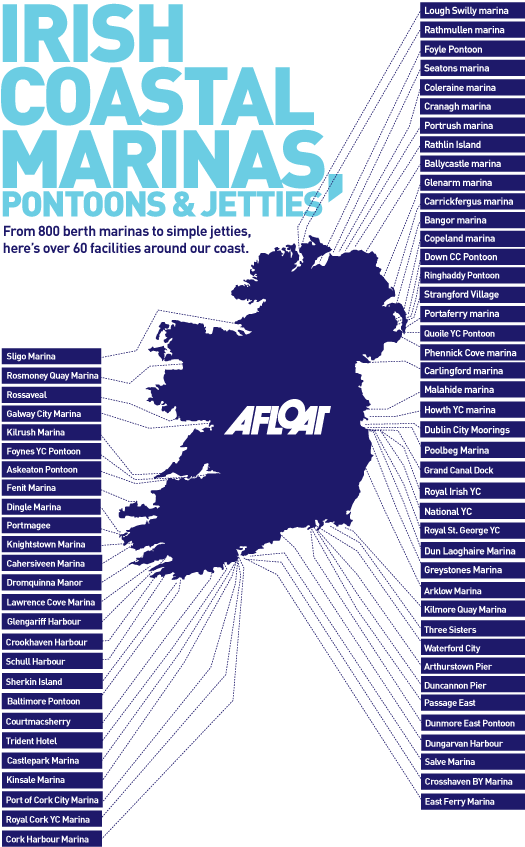
South-West Coast
Kilrush Marina – 170 berths. Kilrush, Co. Clare. Tel: 065 905 2072, email: [email protected]
Fenit Marina – 130 berths (to be extended). Tralee and Fenit Harbour Commissioners, Harbour Office, Fenit, Tralee, Co. Kerry. Tel: 066 713 6231, email: [email protected]
Dingle Marina – 80 berths. Dingle, Co. Kerry. Tel: 066 915 1629, email: [email protected]
Cahersiveen Marina – 93 berths. ACARD Ltd., 'The Old Barracks', Bridge Street, Cahersiveen, Co. Kerry. Tel: 066 947 2777, email: [email protected]
South Coast
Lawrence Cove Marina – 50 berths. Bere Island, Co. Cork. Tel: 027 75044, email: [email protected]
Kinsale Marina – 270 berths. Kinsale Yacht Club & Marina, Kinsale, Co. Cork. Tel: 021 477 3433, email: [email protected]
Castlepark Marina – 150 berths. Kinsale, Co. Cork. Tel: 021 477 4959, email: [email protected]
Royal Cork Yacht Club Marina – 200 berths. Royal Cork Yacht Club, Crosshaven, Co. Cork. Tel: 021 483 1023, email: [email protected]
East Ferry Marina – 100 berths. East Ferry, Cobh, Co. Cork.
Crosshaven Boatyard Marina – 120 berths. Crosshaven Boatyard Co. Ltd., Crosshaven, Co. Cork. Tel: 021 483 1161, email: [email protected]
Salve Marina – 57 berths. Crosshaven, Co. Cork. Tel: 021 483 1145, email: [email protected]
South-East Coast
Arklow Marina – 72 berths. North Quay, Arklow. Tel: 0402 39901/32610, email: [email protected]
Kilmore Quay Marina – 55 berths. Harbour Office, Kilmore Quay, Wexford. Tel: 053 91299 or 087 900 1037.
Three Sisters Marina, New Ross – 66 berths. Tel: 086 388 9652 or 051 421284, email: [email protected]. Also New Ross Town Council, The Tholsel, New Ross, Co. Wexford. Tel: 051 421284, email:[email protected]
East Coast/Dublin Area
Malahide Marina – 350 berths. Malahide Marina Centre, Malahide, Co. Dublin. Tel: 01 845 4129, email: [email protected]
Howth Yacht Club Marina – 270 berths (to be extended). Harbour Road, Howth, Co. Dublin. Tel: 01 839 2777, email: [email protected]
Dublin City Moorings – 30 berths. Dublin Docklands Development Authority, 52–55 Sir John Rogerson's Quay, Docklands, Dublin 2. Tel: 01 818 3300, email: [email protected]
Poolbeg Marina – 100 berths. Poolbeg Yacht, Boat Club & Marina, South Bank, Pigeon House Road, Ringsend, Dublin 4. Tel: 01 668 9983, email: [email protected]
Dun Laoghaire Marina – Over 800 berths. Harbour Road, Dun Laoghaire, Co. Dublin. Tel: 01 2020 040, email: [email protected]
Greystones Marina - 100 berth facility. [email protected] Call: +353 (0)86 2718161
North and North-East Coasts
Lough Swilly Marina – 200 berths, more after extension. Marina Office, Fahan, Inishowen, Co. Donegal. Tel: 074 936 0008, email: [email protected]
Foyle Pontoon, Derry – 50 berths. Foyle Pontoon, Londonderry Port, Port Road, Lisahally, Co Londonderry BT47 6FL, N. Ireland. Tel: 0044 28 7186 0313 (24 hours), email: [email protected]
Seatons Marina – 70 berths. Drumslade Road, Coleraine, BT52 1SE, N. Ireland. Tel: 028 7083 2086, email: [email protected]
Coleraine Marina – 60 berths. Cloonavin, 66 Portstewart Road, Coleraine BT52 1EY, N. Ireland. Tel: 028 7034 4768, email: [email protected]
Portrush Harbour – 100 berths. Portrush, Coleraine, N. Ireland. Harbour Master, Mr Richard McKay, tel: 028 7082 2307 or on VHF channel 12. Further information from Victor Freeman on tel: 028 7034 7234.
Ballycastle Marina – 74 berths. Contact: John Morton, 14 Bayview Road, Ballycastle BT54 6BT, N. Ireland. Tel: 028 2076 8525
Rathlin Island – 30 berths. Ballycastle, N. Ireland. Contact Moyle District Council, Sheskburn House, 7 Mary Street, Ballycastle BT54 6QH, N. Ireland. Tel: 028 2076 2225, email: [email protected]
Glenarm Marina – 40 berths. Glenarm Harbour, Glenarm BT44 0EA, Co Antrim, N. Ireland. Tel: 028 2884 1285
Carrickfergus Marina – 280 berths. 3 Rodgers Quay, Carrickfergus BT38 8BE, N. Ireland. Tel: 0044 28 933 66666
Bangor Marina – 500 berths. Bangor Marina, Quay Street, Bangor, Co. Down BT20 5ED, N. Ireland. Tel: 0044 28 9145 3297, email: [email protected] or [email protected]
Portaferry Marina – 15 visitor berths. 11 The Strand, Portaferry, Co. Down BT22 1PF, N. Ireland. Tel: 0044 28 4272 9598, email: [email protected]
Phennick Cove Marina – 55 berths. 19 Quay Street, Ardglass, Co Down BT30 7SA, N. Ireland. Tel: 0044 28 4484 2332, email: [email protected]
Carlingford Marina – 300 berths. 6 Carlingford Marina, North Commans, Carlingford, Co Louth. Tel: 042 937 3073, email: [email protected]
Proposed New Marinas (as at March 2009)
Bray
Cobh
Courtown
Dungarvan
Galway
Killybegs
Schull
Skerries
Union Hall



























